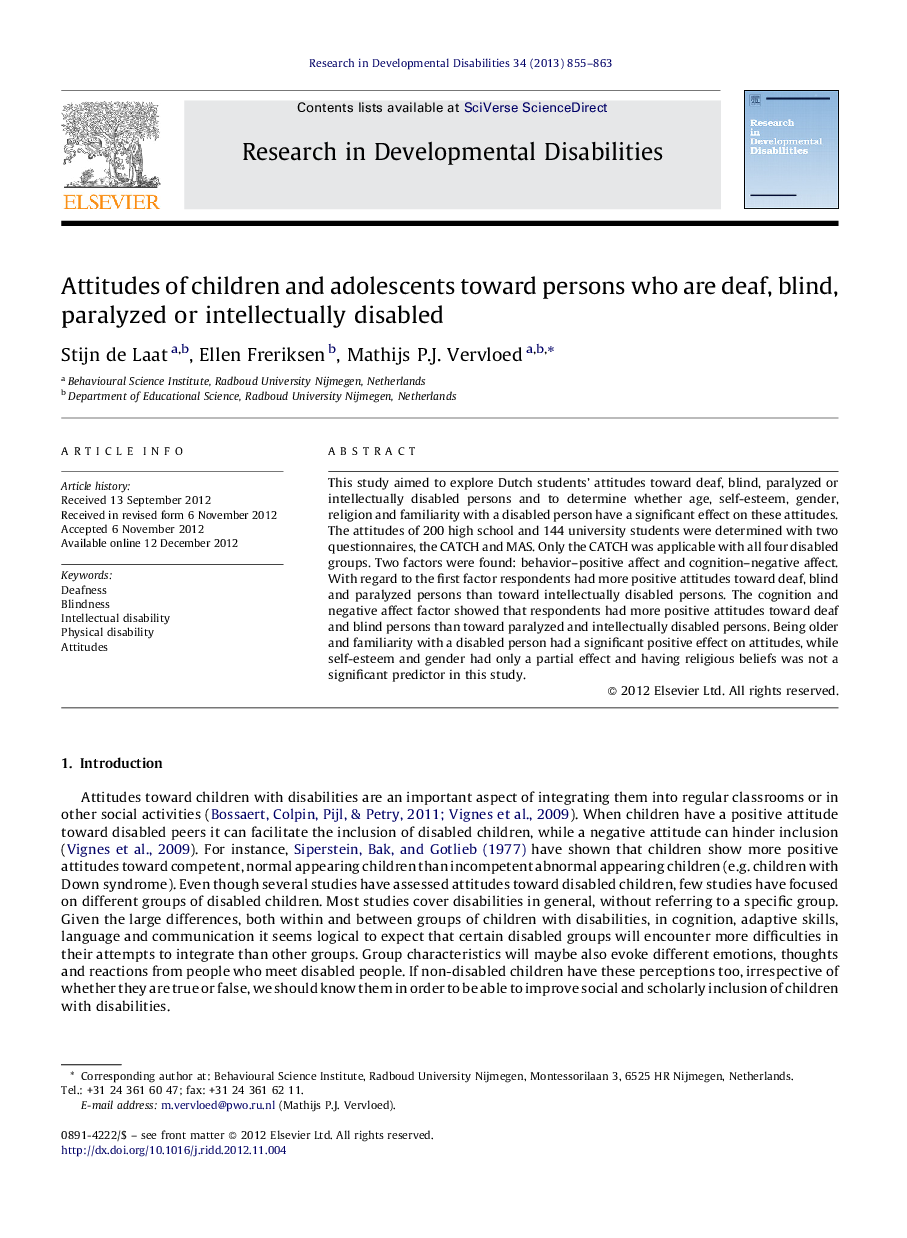| Article ID | Journal | Published Year | Pages | File Type |
|---|---|---|---|---|
| 371531 | Research in Developmental Disabilities | 2013 | 9 Pages |
This study aimed to explore Dutch students’ attitudes toward deaf, blind, paralyzed or intellectually disabled persons and to determine whether age, self-esteem, gender, religion and familiarity with a disabled person have a significant effect on these attitudes. The attitudes of 200 high school and 144 university students were determined with two questionnaires, the CATCH and MAS. Only the CATCH was applicable with all four disabled groups. Two factors were found: behavior–positive affect and cognition–negative affect. With regard to the first factor respondents had more positive attitudes toward deaf, blind and paralyzed persons than toward intellectually disabled persons. The cognition and negative affect factor showed that respondents had more positive attitudes toward deaf and blind persons than toward paralyzed and intellectually disabled persons. Being older and familiarity with a disabled person had a significant positive effect on attitudes, while self-esteem and gender had only a partial effect and having religious beliefs was not a significant predictor in this study.
► Attitudes toward children with disabilities consist of behavior and positive affect and cognition and negative affect. ► Attitudes differ per handicap group but it is unknown why. ► Attitudes toward people with intellectual disabilities were the least positive. ► Age and familiarity with a handicapped person correlate positively with attitudes.
